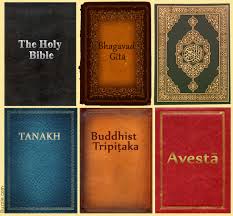
What we do when we meditate for peace is open ourselves to peace, recognising the need for it in our own hearts, in our families, in our nation and in our world. I do believe that this releases good, positive energy which we can send out to others. Sometimes I think this is all we can do for the world and that it's a contribution to the future evolution of the human family. There's a song - 'It's not what you do but the way that you do it......'. There is a lot of truth in this, I think. I've sometimes come across people who are great activists for justice but angry with it so that the energy they communicate is anger more than anything else. It's not possible to be a peacemaker, I think, and not strive for inner peace which we hope might express itself in our actions and relationships. I also like the idea of focussing our energies, which many religious practitioners do by dedicating their day with its joys and sorrows, hopes and fears to God as they understand God, trusting that it contributes to the building of God's Kingdom, to use a Christian phrase.
There's also a secular version of this. It's called kything. What this does is focus our attention on someone (or a situation) and consciously send good, positive, healing energy out to them. If the person knows when you are doing this they can consciously receive that energy which is good for anyone in a situation of suffering. Kything is mutual and just as it's possible for us to send out our good energies so it's possible to receive the good energies of others. To me this is very similar to prayer but acceptable to some because it doesn't involve belief in a Divine Being intervening in the world. But it has a similar effect - we now know from research done on people who meditate that meditation can change our brainwaves which send out positive vibes to the world around them. Meditation is a religious exercise though now-a-days it's taught as a way of reducing stress. The secularisation of it means that it's acceptable to people who are not religious and wouldn't admit to praying. For me the label doesn't matter. I think we're talking about the same reality but using different language.
In our peace meditation we pray in silence but there's real strength and support in doing this together and a great sense of unity. I remember reading once - in Morris West's book, The Ambassador- about a conversation between a Buddist monk and the ambassador in which the monk said ' when we are silent we are one, when we speak we are two'. There aren't many of us but the fact we take the time and trouble to come together must also be a contribution, surely. And then we're joined to all the others who pray for peace. This has become a world wide movement. Each year the Fuji Peace Santuary which describes itself as 'the birthplace and global home of the Symphony of Peace Prayers' hosts an interfaith gathering to pray for peace. Many of those who formally participate come from peace centres throughout the world. Then there's the World Peace Prayer Society which establishes peace poles throughout the world with the prayer, 'may peace prevail on earth', and the names of the countries of the world carved on it. I've heard of a movement to institute a peace pulse movement to encourage people to radiate peace each month to an area of the world that needs it most.
So we are not alone as we sit together in silence and pray for peace in our troubled world. Perhaps you might join us.
Lead us from death to Life,
from falsehood to Truth.
Lead us from despair to Hope,
from fear to Trust.
Lead us from hate to Love,
from war to Peace.
Let Peace fill our heart, our world, our universe.
Peace, peace, peace




 RSS Feed
RSS Feed
